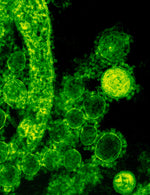
Gut Inflammation and Proteobacteria: Understanding Its Impact on Health and Well-Being
Introduction
Proteobacteria is a diverse phylum of bacteria that includes many pathogens and is commonly associated with gut inflammation. While some strains are beneficial, an overgrowth of Proteobacteria can lead to dysbiosis, impacting gut health, immune function, and overall well-being. This blog explores the importance of maintaining a balanced gut microbiome, particularly concerning Proteobacteria, and provides insights into symptoms of imbalance, lifestyle modifications, and effective supplements for promoting gut health.
What Are Proteobacteria?
Proteobacteria are a major group of bacteria that include several well-known pathogens, such as Escherichia coli and Salmonella. They are characterized by their Gram-negative cell wall structure and diverse metabolic capabilities. This phylum is commonly found in various environments, including soil, water, and the human gut. While Proteobacteria play essential roles in digestion and metabolism, an overabundance can lead to inflammation and other health issues.
Role of Proteobacteria in the Gut Microbiome
Proteobacteria are integral to the gut microbiome, contributing to digestion and nutrient absorption. However, an imbalance in the gut microbiota, characterized by an overgrowth of Proteobacteria, can trigger inflammatory responses and disrupt the gut's delicate ecosystem. Factors such as diet, stress, and antibiotic use can influence the levels of Proteobacteria in the gut, emphasizing the need for balance to support overall health.
Importance of Gut Health and Proteobacteria
1. Gut Health and Digestion
A healthy gut microbiome is essential for proper digestion and nutrient absorption. Proteobacteria play a role in breaking down complex carbohydrates and synthesizing vitamins. However, when their levels become excessive, they can contribute to gastrointestinal issues such as bloating, gas, and diarrhea .
2. Immune Function
The gut microbiome is closely linked to the immune system, with about 70% of immune cells residing in the gut. An imbalance in Proteobacteria can lead to chronic inflammation, which may compromise immune function and increase susceptibility to infections and autoimmune disorders . Maintaining a balanced microbiome is crucial for optimal immune response.
3. Gut-Brain Connection
Research has shown a strong connection between gut health and mental well-being, often referred to as the gut-brain axis. An overgrowth of Proteobacteria can disrupt this connection, potentially leading to symptoms of anxiety and depression. Gut health influences neurotransmitter production and hormone regulation, highlighting the importance of maintaining a balanced microbiome for mental well-being .
4. Gut-Skin Connection
The gut-skin connection is an emerging area of research that suggests the state of the gut microbiome can influence skin health. An overabundance of Proteobacteria may contribute to skin conditions such as acne, eczema, and psoriasis. By addressing gut health, individuals may see improvements in their skin condition and overall appearance .
Symptoms of Proteobacteria Imbalance
An imbalance in Proteobacteria levels can manifest in various symptoms, indicating underlying gut inflammation or dysbiosis:
1. Gastrointestinal Issues
- Bloating: A feeling of fullness or swelling in the abdomen.
- Gas: Excessive flatulence or burping.
- Diarrhea or Constipation: Irregular bowel movements or persistent diarrhea can indicate gut imbalance.
2. Fatigue and Weakness
Chronic fatigue or a general feeling of weakness may result from nutrient malabsorption caused by dysbiosis.
3. Skin Problems
Conditions such as acne, eczema, and other skin irritations can be exacerbated by an imbalanced gut microbiome, particularly with elevated Proteobacteria levels.
4. Mood Changes
Symptoms of anxiety, depression, or irritability may arise due to the gut-brain connection, emphasizing the importance of gut health for mental well-being .
How to Restore Balance and Reduce Gut Inflammation
Restoring balance in the gut microbiome and reducing inflammation can be achieved through lifestyle modifications and targeted supplementation.
1. Dietary Changes
Adopting a gut-friendly diet can significantly impact the levels of Proteobacteria and promote overall gut health:
- Increase Fiber Intake: Foods rich in dietary fiber, such as fruits, vegetables, whole grains, and legumes, can promote the growth of beneficial bacteria while suppressing pathogenic bacteria.
- Incorporate Fermented Foods: Foods like yogurt, kefir, sauerkraut, and kimchi contain probiotics that can help restore balance to the gut microbiome.
- Reduce Sugar and Processed Foods: High sugar intake and processed foods can fuel the growth of harmful bacteria, including Proteobacteria. Reducing these in your diet can help promote a healthier gut environment .
- Hydration: Drinking plenty of water aids digestion and helps maintain the mucosal lining of the gut.
2. Lifestyle Modifications
Making certain lifestyle changes can further support gut health:
- Manage Stress: Chronic stress can negatively impact gut health. Techniques such as mindfulness, yoga, and regular physical activity can help manage stress levels.
- Get Adequate Sleep: Quality sleep is essential for maintaining a balanced microbiome and overall health.
- Avoid Unnecessary Antibiotics: Limiting the use of antibiotics to necessary situations can help preserve beneficial gut bacteria and prevent dysbiosis.
3. Supplements
Certain supplements may support gut health and help reduce Proteobacteria levels:
- Probiotics: Specific probiotic strains, such as Lactobacillus and Bifidobacterium, can help restore balance to the gut microbiome. Look for multi-strain probiotics for optimal results .
- Prebiotics: Supplements containing prebiotics like inulin and fructooligosaccharides (FOS) can promote the growth of beneficial bacteria while inhibiting pathogenic bacteria.
- Digestive Enzymes: These can help improve digestion and nutrient absorption, particularly in individuals experiencing gastrointestinal discomfort.
- L-Glutamine: An amino acid that supports the intestinal lining and helps reduce gut inflammation.
Conclusion
Gut inflammation related to Proteobacteria can significantly impact overall health and well-being, affecting gut health, immune function, mental well-being, and skin health. Understanding the role of Proteobacteria in the gut microbiome is essential for recognizing symptoms of imbalance and taking proactive steps to restore gut health. By adopting a balanced diet, making lifestyle changes, and considering appropriate supplements, individuals can promote a healthy gut microbiome and enhance their overall well-being.
Additional References
- Gut Microbiome and Proteobacteria: PubMed
- Understanding Gut Inflammation: Healthline
- The Gut-Brain Connection: Verywell Mind